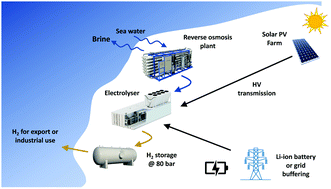Hydrogen might make sense with lots of wind. When the wind blows and we have a massive surplus we make hydrogen. When it's middling we cut back on hydrogen production. When there's none we burn the hydrogen to make electricity.
Its an example of how something can work with renewables rather than replacing them like nuclear.
Its an example of how something can work with renewables rather than replacing them like nuclear.




